There is a variety of cooking oils available in the market; sunflower oil, saffola oil, groundnut oil, rice bran oil, olive oil to name a few. Some people also use other types of fats such as desi ghee for cooking.
Ghee is considered to be healthy since ancient times in India. It is also known to have some medicinal properties. It is really interesting to know how desi ghee is different from various cooking oils!
Ghee is an ideal fat for deep frying because it’s smoke point (where its molecules begin to break down) is 250°C (482°F), which is well above the typical cooking temperature of around 200°C (392°F) and above that of most vegetable oil.
Ghee is rich in fat-soluble vitamins A, D, E, which helps maintain a healthy metabolism and balance your hormones. Ghee contains butyrate and essential short-chain fatty acid, which help our body to detoxify.
Ghee is lactose and casein free and can be consumed by lactose and casein intolerant people. Cow milk ghee is sweet in taste and light on your digestive system.
Desi cow milk ghee from grass-fed cows contain CLA (conjugated linoleic acid ), which help us to manage our cholesterol and high blood pressures and reduce inflammation, it actually helps our weight management.
Desi Cow milk Ghee reduces inflammation in the digestive tract and thought the body. Ghee helps to create an ore alkaline system that overall reduces inflammation by reducing the leukotriene secretion and reducing prostaglandin in the body.
Additionally, ghee helps to increase gastric acid, aiding inefficient digestion.
Vitamin K2 present in ghee helps utilize minerals including calcium, which helps to protect against tooth decay, support proper growth and development of bones and protect against the calcification of the arteries and also known as atherosclerosis.
Remember- too much of anything is bad!
Why is Ghee good for you?
- Ghee can be stored at room temperature and doesn’t need to be refrigerated.
- Ghee is enriched with butyrate, Short-chain fatty acids that help to reduce inflammation and improvement in the digestive system.
- As ghee is a rich source of vitamins like A, D, E, K. All are fat-soluble.
- Just 1 tablespoon of ghee fulfils around 15 per cent of the daily requirement of vitamin A.
- It tastes yummy by adding on topping for foods like rice, veggies, slices of bread.
- To promote insulin resistance the highest content of CLA (conjugated linoleic acid) is consumed by ghee to avoid the risk of cancer.
Reasons to Implement Ghee than Cooking Oil
When it boils down to selecting the ideal component for cooking, the discussion among ghee and cooking oil mostly takes center stage. Let’s get down to the distinct benefit that ghee delivers to the table and scrutinize why it could be a far better option for your culinary endeavors.
Ghee: A Nutrient-Rich Powerhouse
Ghee possesses a higher antioxidant consistency, rendering to a rigorous cleansing of the body. Combined with beneficial vitamins A, D, E, K, and Omega 6, ghee provides a nutritional profile that exceeds many cooking oils. What segregates ghee apart is its natural production process, positioning in stark contrast to the further more processed nature of vegetable oils.
Frying with Ghee: A Crispy and Healthier Alternative
During the time of frying, ghee catches the lead with a considerably higher smoke point compared to butter or cooking oils. This characteristic prevents it from burning rapidly, resulting in crisper and more flavorsome fried foods. Beyond the consistency and flavor, the health advantages of ghee shine through, owing to its antioxidant-rich consistency and the presence of several vitamins.
Replacing Cooking Oil with Ghee: A Wise Choice
The adaptability of ghee elevates to its compatibility as an alternative for cooking oil. With an extended duration of shelf life at room temperature and the further bonus of being lactose-free due to the segregation of milk solids during the process of cooking, ghee sticks out as a practical and healthier substitute.
Which is better Desi Cow Ghee or Cooking Oil considering some key points?
Making Process
Desi cow ghee is clarified butter which is made by using the traditional Vedic method process of making ghee. Whereas cooking oil is extracted from seeds like soybean, corn, and sunflower, etc.
Source
Desi ghee is made from the milk by grass-fed cows only and the oils can be made from animals, plants, or by using synthetic fat.
Nutritional contents
Desi ghee enriched with Vitamins A, D, E, K. Along with rich antioxidants and healthy fats. On other hand, cooking oil consists of monounsaturated and polyunsaturated fats.
Smoke point
Ghee has a very high smoke point as compared to any oils.
Storage
Desi cow ghee can be stored for a longer period as compared to oils, vegetable oil has a shorter lifespan.
Benefits on health
Consumption of desi ghee has many benefits for health and in the case of cooking oil on excessive use gives harmful effect on the body
Benefits of cooking in desi ghee
- High spoke point
- Lactose and casein free
- Rich fat soluble vitamins
- Good for eyes, bones and overall health
- Help our body to detoxify
- CLA help managing high cholesterol
- Reduces inflammation in digestive tract

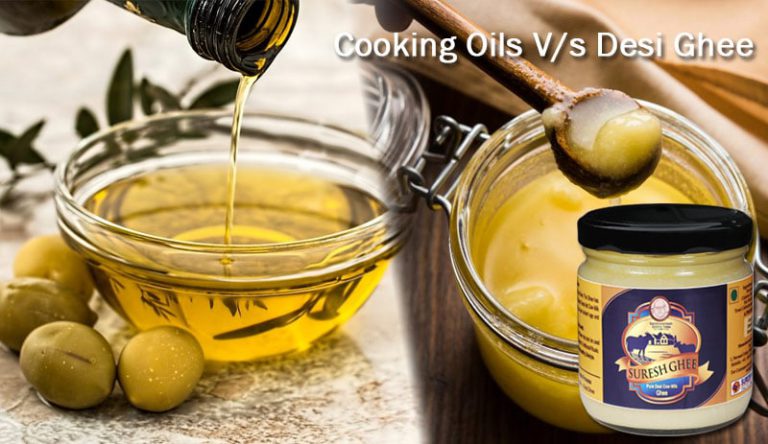
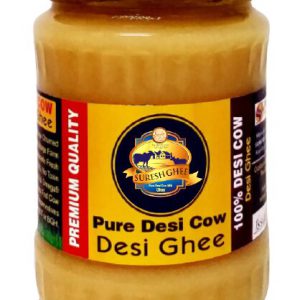
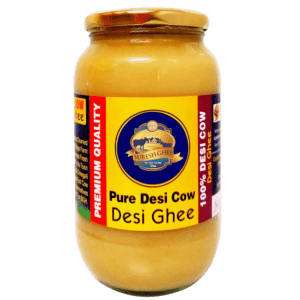
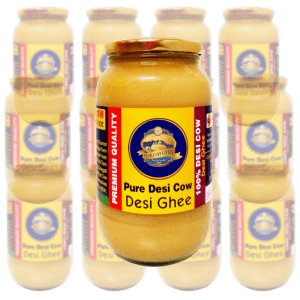
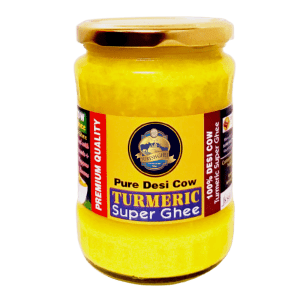
 WhatsApp us
WhatsApp us
Naveen m...